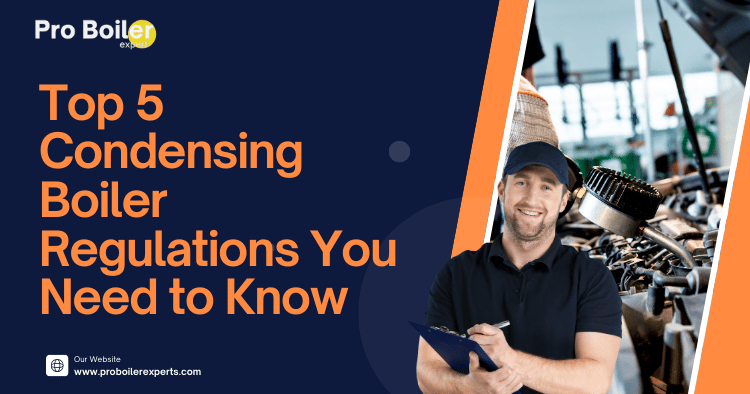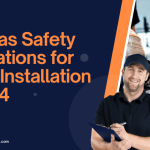Top 5 Condensing Boiler Regulations You Need to Know (2024)
Table of Contents
- What is a Condensing Boiler?
- Efficiency Standards
- Installation Requirements
- Maintenance Regulations
- Safety and Emission Controls
What is a Condensing Boiler?
Before diving into the regulations, let’s clarify what a condensing boiler is. Condensing boilers are high-efficiency heating systems that utilize waste heat from flue gases to preheat incoming water. This process increases energy efficiency, often exceeding 90%. As a result, they are more environmentally friendly and cost-effective in the long run.
Understanding the basic function of these boilers helps highlight why regulations are in place—to ensure they operate safely and efficiently.
Efficiency Standards
One of the most critical aspects of condensing boiler regulations is the efficiency standards set by governing bodies. In many regions, the minimum efficiency rating for new condensing boilers is typically around 90% or higher.
| Region | Efficiency Standard | Regulating Body |
|---|---|---|
| USA | 90% AFUE | U.S. Department of Energy |
| UK | 92% SEDBUK | Energy Saving Trust |
| EU | 94% ErP | European Commission |
These standards are designed to reduce energy consumption and lower greenhouse gas emissions. Compliance with these standards not only ensures environmental protection but also helps homeowners save on energy bills.
For further insights into energy-efficient heating solutions, you might explore the Top 5 Gas Boilers for Efficient Home Heating in 2024 and the Top 5 Electric Boilers for Efficient Home Heating in 2024.
Installation Requirements
The installation of condensing boilers comes with specific regulations that must be adhered to ensure safety and efficiency. Depending on your location, these may include:
- Ventilation: Condensing boilers require proper ventilation to expel gases safely. Regulations often stipulate the type and size of flue systems used.
- Location: The installation site must adhere to local building codes, which may require the boiler to be placed a certain distance from windows, doors, or other flammable structures.
- Professional Installation: Many jurisdictions require that condensing boilers be installed by a certified professional, ensuring they meet all safety and performance standards.
Homeowners should consult local regulations and hire qualified professionals for installation. Resources like the U.S. Department of Energy and local building authorities can provide guidance.
For a comprehensive overview of installation processes, check the Essential Pre-Installation Checklist for Your New Boiler.
Maintenance Regulations
Regular maintenance is essential for condensing boilers to function efficiently. Regulations often require:
- Annual Inspections: Many regions mandate annual inspections to ensure the boiler operates within the specified efficiency and safety parameters.
- Record Keeping: Homeowners may be required to keep maintenance records as proof of compliance with local regulations.
- Service by Certified Technicians: Maintenance and repairs should be performed by certified professionals familiar with the specific requirements of condensing boilers.
Following these regulations not only prolongs the life of the boiler but also ensures it remains safe for use.
For more information on maintenance practices, check out the Essential Boiler Maintenance Tips.
Safety and Emission Controls
Safety and emissions regulations are crucial for protecting both users and the environment. Key components include:
- Emission Limits: Condensing boilers must meet specific emission limits for harmful gases, including carbon monoxide (CO) and nitrogen oxides (NOx). These limits vary by region but are generally becoming more stringent.
- Safety Features: Modern condensing boilers are required to have built-in safety features, such as automatic shut-off valves and pressure relief valves, to prevent dangerous situations.
- Regular Testing: In some areas, boilers may be subject to regular testing to ensure compliance with emission standards.
Adhering to these safety regulations is vital for minimizing the environmental impact and ensuring the health and safety of residents.
Homeowners can refer to their local environmental agency for detailed guidelines on emissions and safety standards. For further reading, consider looking at the Top Energy Efficiency Standards for Boiler Installations in 2024.
FAQs About Condensing Boiler Regulations
1. What happens if my boiler does not comply with regulations?
Non-compliance can lead to fines, increased energy costs, or even legal action. It’s essential to keep your boiler up to date with current regulations.
2. How can I find out if my boiler is compliant?
Check your boiler’s efficiency rating and consult with a licensed technician. They can assess your system and provide recommendations based on local regulations.
3. Are there any incentives for upgrading to a condensing boiler?
Many regions offer incentives, such as rebates or tax credits, for upgrading to energy-efficient systems. Check with your local energy provider or government website for available programs.
Conclusion
Understanding condensing boiler regulations is crucial for homeowners looking to improve efficiency and safety in their heating systems.
By staying informed about efficiency standards, installation requirements, maintenance regulations, and safety controls, you can ensure your boiler not only complies with regulations but also operates at peak performance.
For more information, visit the U.S. Environmental Protection Agency or your local building authority. Always consult a professional when in doubt to ensure your heating system is safe and efficient!
Sure! Please provide the Markdown content that you would like to convert to HTML.





